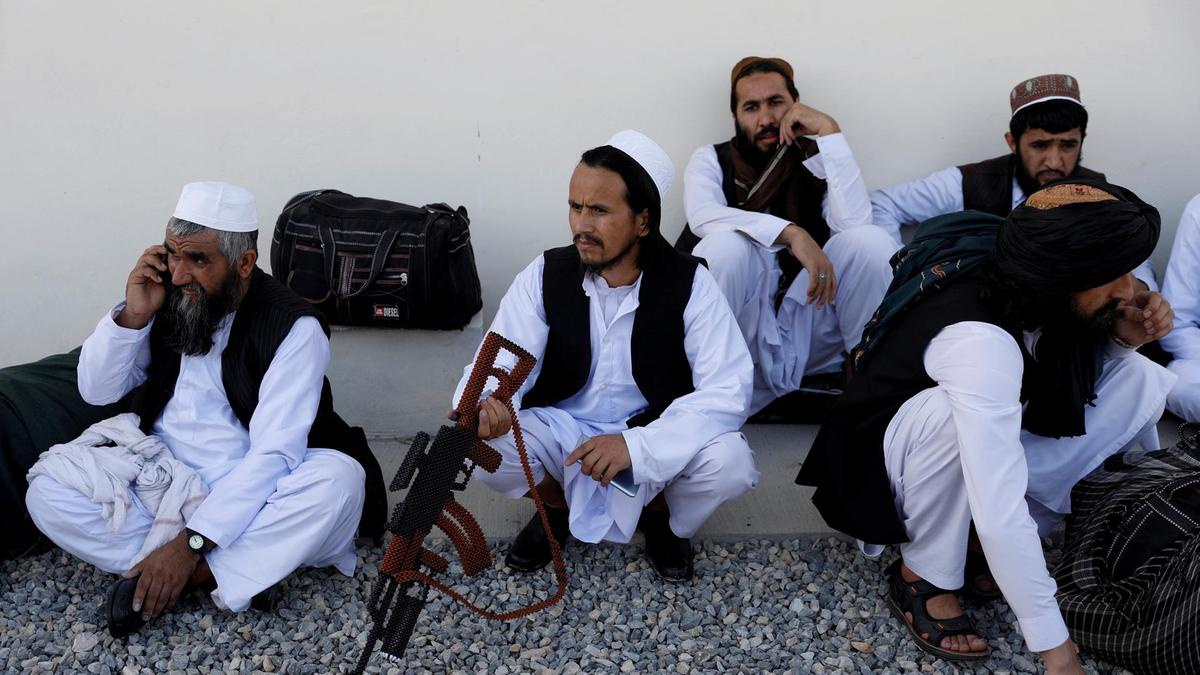When Aziz Amir was deported from the UK back to his native Afghanistan in 2011, he faced a choice: defy the Taliban and risk being murdered, or join them.
Mr Amir, not his real name, chose the latter, not just to preserve his own life, but for the safety of his family who live in areas controlled by the insurgent group.
“Once I returned to my village, it was completely under Taliban control,” he told The National.
The Taliban’s 19-year-battle against the US and NATO forces has resulted in thousands of civilian casualties, unprecedented displacement, an unstable political situation and a weak economy.
Many like Mr Amir have been drawn, coerced or forced to join the many insurgencies that have been increasingly gaining power in Afghanistan.
Now hundreds of young men like 34-year old Mr Aziz spy an opportunity in peace talks between the US and the extremist group. The chance to gain freedom.
Escape and return
Mr Amir left Afghanistan in 2003 on the overthrow of the Taliban regime, at the age of sixteen.
The group still controlled swathes of land, including where Mr Amir’s family resided.
“My family worried that the Taliban might recruit me for their fights with the foreign forces. So they helped me leave,” he said
The journey, with the aid of smugglers, took nine months, passing through Iran and Turkey and eventually to London.
“The next few years seem like a dream now,” he said of the next nine years spent working and living in the Alum Rock area of Birmingham. The relative peace of the UK provided Mr Amir the hope for a better future.
“We weren’t allowed to work freely so we did odd jobs that we could find. It was handwork but it was peaceful. It was a different life,” he said.
“We lived with Indians, Pakistanis and other South Asians. I learned to speak English but we mostly spoke in Urdu. I have friends there. I wish I could go back to London.”
Lasting peace was not on the cards for Mr Amir, however. In 2011 he was arrested and deported for “illegal entry” – he had not registered as a refugee.
He showed The National a letter from the UK Border Agency announcing his date of deportation, flight number and country of origin, but not much else.
“Directions have now been given for your removal from the United Kingdom,” it reads, a sentence that changed Amir’s life forever.
Once he returned to his home village, the pressure to join up ratcheted up. Those deported from abroad, such as Amir, are seen as traitorous.
‘Join the Taliban or Isis’?
“Those deported to Afghanistan are in a very vulnerable situation. They have no social network or support, no money feed themselves, no place to go to,” said Abdul Ghafoor, Director at Afghanistan Migrants Advice and Support Organisation (AMASO), in Kabul.
“I have seen many cases where we had boys who were forced to live under the bridges in Kabul after their deportations, leaving them vulnerable to negative elements of society.”
Read full story on The National UAE
